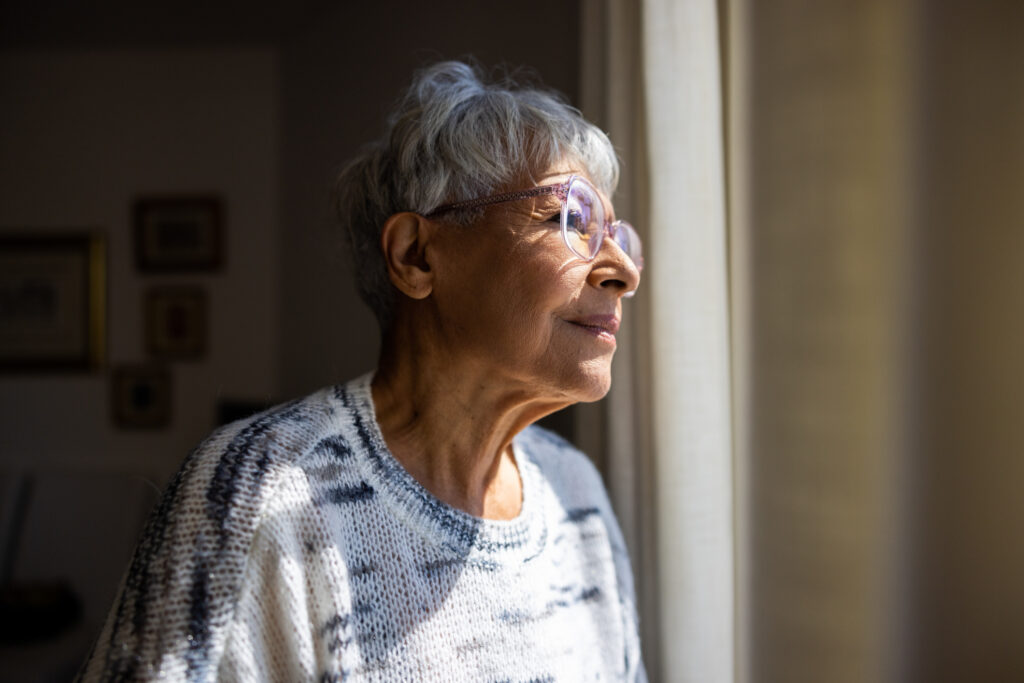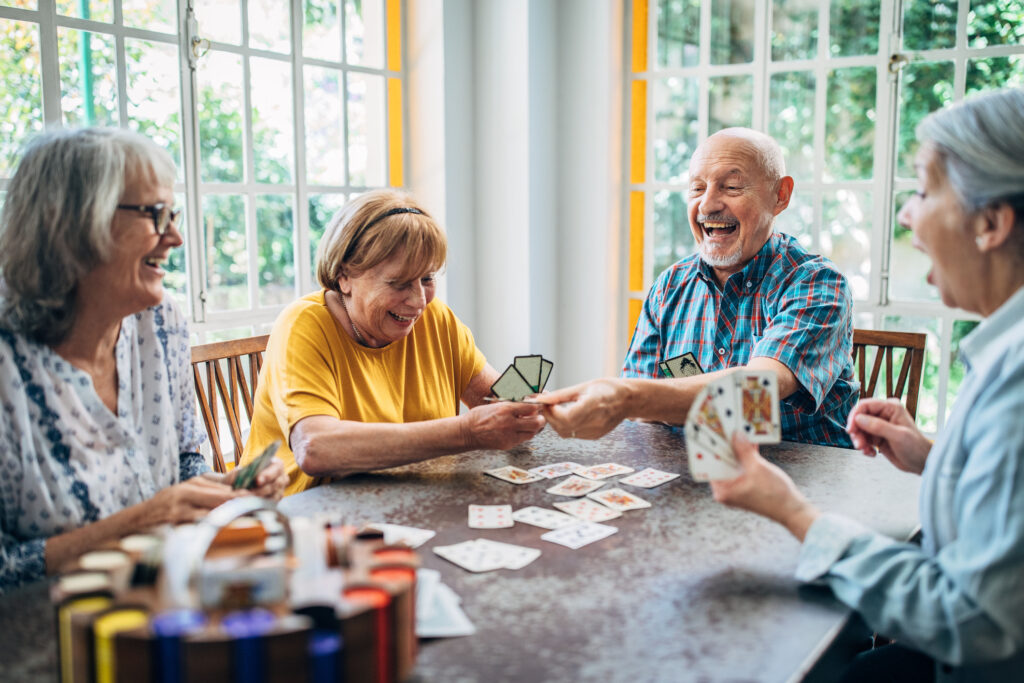As we head into the heart of winter, we tend to bundle up, stay inside, and push off social engagements until it’s warm again. The colder months can be especially difficult for older adults living alone, and new research tells us that loneliness actually has a negative impact on our health.
Loneliness is a Major Risk Factor for Dementia
A new study led by faculty at Florida State University College of Medicine collected data from over 600,000 individuals around the world. It found that experiencing feelings of loneliness increases the risk of dementia by 31% and overall cognitive impairment by 15%. This study, the largest of its kind, identifies loneliness as a major risk factor for memory loss. It’s as much of a dementia risk factor as physical inactivity.
It’s important to define loneliness so that we can learn the best ways to combat it. People tend to confuse solitude and loneliness, but there is a key difference. Solitude is about being physically alone, where there is no one else in your physical location. But loneliness is more focused on the quality of your social connections. For example, even if you’re surrounded by people, you could feel lonely because you don’t have strong connections with them.

What are the Other Health Implications of Loneliness?
The health implications of loneliness are striking, especially when it comes to the consequences for physical health. Former U.S. Surgeon General, Dr. Vivek Murthy, has even declared loneliness a public health epidemic.
About 1 in 4 older adults are facing loneliness, which increases their risk of developing heart disease, having a stroke, and dealing with depression and anxiety. In fact, loneliness has a health risk equivalent to smoking 15 cigarettes a day.
NASEM (The National Academies of Sciences, Engineering and Medicine) has also reported that marginalized older adults, such as immigrants and members of the LGBTQ+ community, are at an even higher risk of these health issues because they experience loneliness more often. Social factors such as language barriers and discrimination can take away from opportunities to create the connections necessary for happiness and wellbeing.
How We Can Support those Experiencing Loneliness and Social Isolation
The best way for us to support those experiencing feelings of loneliness and social isolation is through listening and responding to their needs, and getting to know them in a genuine way.

For seniors facing loneliness, assisted living communities can be a great environment for them to make new friends and bond over shared hobbies and interests. Local senior centers and other programs run by the Elder Affairs Office in your area also provide great resources and opportunities for social connection. Some senior centers run programs for volunteers to visit with older adults in their homes, provide companionship and ease loneliness. The centers can also provide meal delivery services and transportation to local medical appointments, creating a sense of community for seniors who may not have family nearby to support them.
In a senior living community, residents engage in programming centered on art, fitness, nature, literature, and so much more. The dining rooms also invite great conversation and great company. Residents enjoy connecting to the surrounding community with outings around town and events for families and the public to attend.
Some of the best ways we can fight against loneliness are by being open and willing to form authentic social connections. That’s why the social environment of assisted living is so important, especially for isolated seniors. When they connect over a favorite book, a love of gardening, or a casual conversation over dinner, they’re able to open up and be themselves. When they form lasting friendships with their peers, they become excited to socialize, engage more in the community and freely pursue their passions. These types of genuine connections can help everyone be less lonely.


 Lindsay Willis
Lindsay Willis